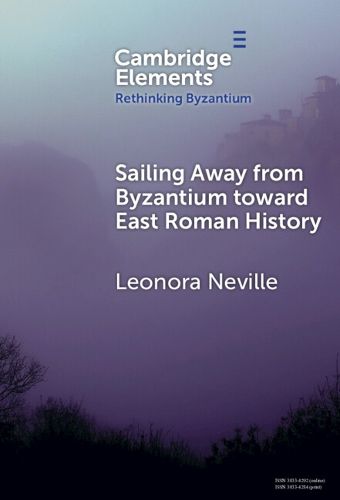Readings Newsletter
Become a Readings Member to make your shopping experience even easier.
Sign in or sign up for free!
You’re not far away from qualifying for FREE standard shipping within Australia
You’ve qualified for FREE standard shipping within Australia
The cart is loading…






Although the first thing one learns about the 'Byzantine Empire' is that it was really the eastern Roman empire, scholars have preferred to call it 'Byzantine' in a repudiation of the self-conception and emic vocabulary of the inhabitants of that polity. The terminology of 'Byzantium' artificially severs the 'medieval' eastern Roman empire from its 'classical' roots allowing for the fundamentally Eurocentric schematization of history into 'ancient,' 'medieval,' and 'Renaissance' periods. 'Byzantine' is not a benign term of art but has served a variety of political and historiographical agendas including maintaining nationalist visions of ethnic continuity, creating precedents for communism, enabling politics of nostalgia for Orthodox dominion, and constructing visions of western European superiority and masculinity that justify colonialism. By exploring these intellectual legacies of 'Byzantium,' and the benefits of conceptualizing Roman history as an unsevered whole, this Element exhorts scholars to let go of the 'Byzantine' misnomer.
$9.00 standard shipping within Australia
FREE standard shipping within Australia for orders over $100.00
Express & International shipping calculated at checkout
Although the first thing one learns about the 'Byzantine Empire' is that it was really the eastern Roman empire, scholars have preferred to call it 'Byzantine' in a repudiation of the self-conception and emic vocabulary of the inhabitants of that polity. The terminology of 'Byzantium' artificially severs the 'medieval' eastern Roman empire from its 'classical' roots allowing for the fundamentally Eurocentric schematization of history into 'ancient,' 'medieval,' and 'Renaissance' periods. 'Byzantine' is not a benign term of art but has served a variety of political and historiographical agendas including maintaining nationalist visions of ethnic continuity, creating precedents for communism, enabling politics of nostalgia for Orthodox dominion, and constructing visions of western European superiority and masculinity that justify colonialism. By exploring these intellectual legacies of 'Byzantium,' and the benefits of conceptualizing Roman history as an unsevered whole, this Element exhorts scholars to let go of the 'Byzantine' misnomer.